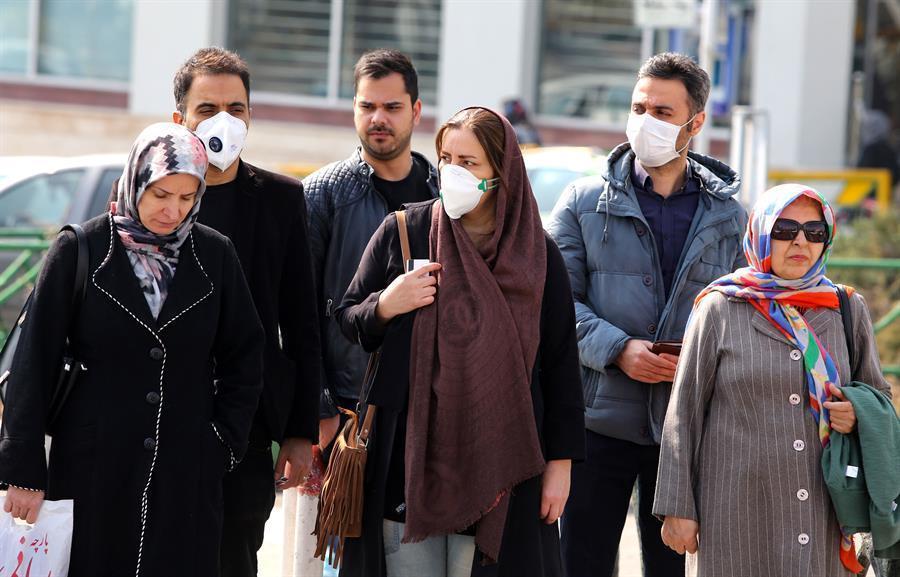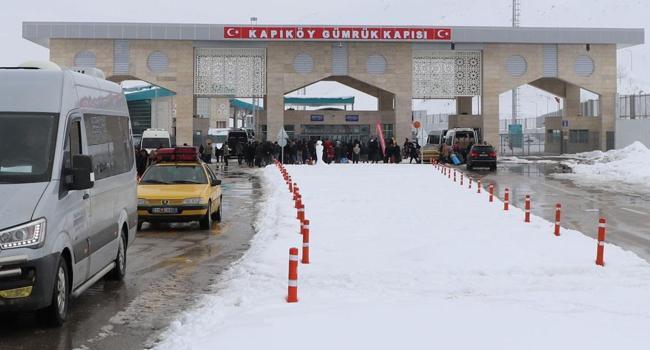Iran shuts schools, cultural centres as coronavirus kills eight
TEHRAN - Agence France-Presse/Anadolu Agency

Iran on Feb. 22 ordered the closure of schools, universities and cultural centres after a coronavirus outbreak that has killed eight people in the Islamic republic -- the most outside the Far East.
The moves came as Iranian authorities reported one more death among 15 new cases of the virus.
Since it emerged in December, the new coronavirus has killed 2,345 people in China, the epicentre of the epidemic, and 17 elsewhere in the world.
The COVID-19 outbreak in Iran first surfaced on Feb. 19, when authorities said it claimed the lives of two elderly people in Qom, a Shiite holy city south of the capital.
They were the first confirmed deaths from the virus in the Middle East. Iran reported two more deaths on Feb. 21.
The death toll from coronavirus in Iran has risen to eight, according to a statement released by the country's Health Ministry on Feb. 23.
Spokesman Kianoush Jahanpour also reported 15 new coronavirus cases taking the total to 43.
Jahanpour said seven of the new cases of the virus, officially known as COVID-19, were detected in Qom city, four others in the capital Tehran, two others in Gilan city and one each in Markazi and Mazandaran provinces.
Based on official figures, nearly 18 percent of those infected with the new coronavirus in Iran have died, compared with little more than three percent in China.
Mask sales soar
As a "preventive measure", authorities ordered the closure of schools, universities and other educational centres in 14 provinces across the country, state television reported.
They include Qom, Markazi, Gilan, Ardabil, Kermanshah, Qazvin, Zanjan, Mazandaran, Golestan, Hamedan, Alborz, Semnan, Kurdistan and the capital, Tehran.
The government also announced that "all art and cinema events in halls across the country have been cancelled until the end of the week" in order to stop infections.
"We are on the frontlines, we need help," head of Qom's medical sciences university said on state TV.
The World Health Organization has expressed concern over the speed at which COVID-19 has spread in Iran, as well as it being exported from the Islamic republic to other countries including Lebanon.
"The concern is... that we have seen an increase in cases, a very rapid increase in a matter of a few days," said Sylvie Briand, director of the WHO's global infectious hazard preparedness department.
"We are just wondering about also the potential of more exported cases in the coming days," she added.
The Iranian outbreak emerged in the lead-up to a parliamentary election on Feb. 21.
State media said the deadly virus had failed to dampen "the revolutionary zeal of Qom's people" to turn out to vote.
Iranians have been snapping up surgical face masks in a bid to avoid catching the virus.
Online retailer Digikala -- Iran's equivalent of Amazon -- said on Feb. 21 that it had sold 75,000 masks within 36 hours.
It said it was not claiming a commission on its mask sales, amid concerns that demand was causing prices to skyrocket on the black market.
'Epidemic has started'
"We stand against the unusual price increase," Digikala tweeted.
"We stand alongside our dear suppliers and by providing fresh supplies, we hope we can meet a part of the country's demand."
The health ministry said tests had been carried out on 785 suspected coronavirus cases since the outbreak began.
"Most of the cases are either Qom residents or have a history of coming and going from Qom to other cities," its spokesman said.
Iran has yet to confirm the origin of the outbreak, but one official speculated that it was brought in by Chinese workers.
"The coronavirus epidemic has started in the country," state news agency IRNA quoted the health ministry's Minoo Mohraz as saying.
"Since those infected in Qom had no contact with the Chinese ... the source is probably Chinese workers who work in Qom and have travelled to China," she added.
But the official did not provide any evidence to support her claim, and it has not been reported elsewhere in Iranian media.
All of those who lost their lives are believed to be Iranian citizens.
Qom is a centre for Islamic studies and pilgrims, attracting scholars from Iran and beyond.
Following the announcement of the first two deaths, neighbouring Iraq on Feb. 19 clamped down on travel to and from the Islamic republic.
The Iraqi health ministry announced that people in Iran were barred from entering the country "until further notice".
Kuwait's national carrier Kuwait Airways meanwhile announced it would suspend all flights to Iran.

















